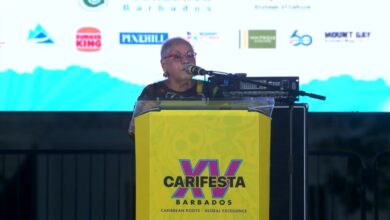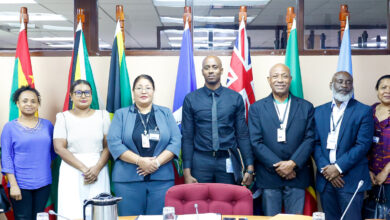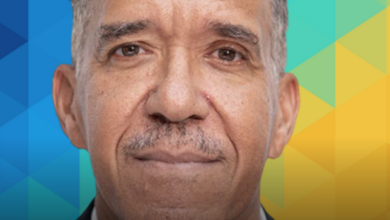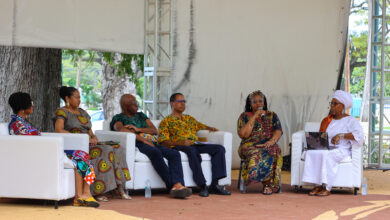(CARICOM Secretariat, Turkeyen, Greater Georgetown, Guyana) Mr. Heraldo Muñoz, UN Assistant Secretary-General/UNDP Assistant Administrator and Regional Director for Latin America and the Caribbean; Ms. Khadija Musa, UN Resident Coordinator/UNDP Resident Representative, Guyana; Representatives of other UN Agencies and Bodies; Members of the Media; Ladies and Gentlemen.
I wish at the outset to apologise for the absence of the Secretary-General who is indisposed and expressed his regrets at not being able to be here. It is indeed a pleasure for me to participate in this media launch of the 2012 Caribbean Human Development Report which focuses on an issue of paramount importance to our Region – the escalating rates of violent crime in our societies and resulting citizen insecurity.
Chair, Ladies and gentlemen, members of the media, the UNDP must be commended on this timely Report, which adds to the body of existing information on crime, violence and development in the Region. More importantly, the Report presents and addresses the issues from a people-centred approach. This is important, given that many of the root causes are those connected with social conditions.
The Report serves to focus attention on the extent of the challenge facing our Region but also makes a strong case for re-orienting our perspectives with regard to dealing with crime and violence. It makes compelling arguments for the co-ordinated involvement of a range of partners in addressing the solutions to this scourge which we are witnessing everyday primarily through the media and, for too many of us, through our own personal experiences and those of our friends and loved ones.
High levels of crime and violence pose a serious threat to both social and economic development and have the potential to reverse the development gains which we have made over the past decades. (And we have heard from Mr Munoz the statistics in that regard with respect to Jamaica and Trinidad and Tobago).The emerging concept of citizen security, advocated for in the Report, is a relatively new one for most of us in the Region, as we have been steeped in models focused primarily on the security of the State and on law enforcement as THE major mechanism. It is instructive that the 2010 Report of the CARICOM Commission on Youth Development highlighted personal insecurity as the number one concern of youth across the Region.
I am pleased to note that this Caribbean Human Development Report has a strong focus on youth, building resilience and protective factors, social inclusion, second chance (restoration and re-integration) and on education and training. Significantly, the Report devotes specific attention to domestic violence, which has escalated in terms of the seriousness of injury and the increasing rate of mortality, and to the topical issue of gang violence. I also welcome its emphasis on the importance of a paradigm shift to address current realities such as community policing, social crime prevention, and the importance of creating that groundswell of support to change communities.
The Caribbean Community has recently embarked, through the Secretariat and its local and external partners, on the implementation of a CARICOM Social Development and Crime Prevention Strategy. The approaches advocated in the Strategy are congruent with the Citizen Security concept. The United Nations Office for Drugs and Crime (UNODC) played a critical role in the development and finalisation of the Plan and valuable support was provided by UNDP and by the Government of Canada in advancing the implementation of the Pilot phase. This work is still in its infancy and the Secretariat looks forward to working with UNDP and our other partners in the roll out of the Plan.
Ladies and Gentlemen, we cannot afford to throw up our hands in despair as I’m sure we are sometimes tempted to do, if only for a fleeting moment. The situation requires resolute and sustained action on the part of governments, the judiciary, law enforcement agencies, the private sector, Faith Based Organisations, the media and other civil society groups, communities, families and individuals. In other words a ‘whole of society’ approach to address these challenges which threaten our very existence.
The media is an important partner in this effort. It is my hope that this media launch will not merely provide a source of reporting for the days or the week ahead, but that it will convince you of the influential role which you can play in the development of our Region by your active engagement. The Secretariat looks forward to working with UNDP, and all of our partners including the media, as together we address the issue of crime and violence and make a difference to the quality of life in our Region.
I thank you.





